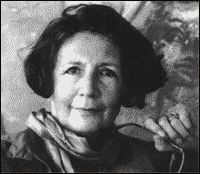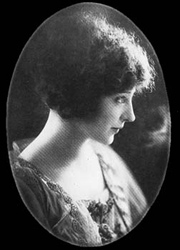Alice Miller and the Drama of the Gifted Child
 Alice Miller's book The Drama of the Gifted Child is such an affirmation of my belief that what we are modeled to as children - and what we model to our children - is the key to future happiness. When Alice Miller says "gifted" she doesn't mean academically gifted, but rather the natural gift that we have as children to survive, to find a way to survive when we are confronted with pain, humiliation, anger and sorrow that we cannot express, because we are not safe in doing so. As children, we are neglected and abused in varying degrees, despite the best intentions of our parents. We have nowhere to escape to and so have no choice but to consider our situation a normal life. It becomes our reality as adults unless we become conscious of the process.
Alice Miller's book The Drama of the Gifted Child is such an affirmation of my belief that what we are modeled to as children - and what we model to our children - is the key to future happiness. When Alice Miller says "gifted" she doesn't mean academically gifted, but rather the natural gift that we have as children to survive, to find a way to survive when we are confronted with pain, humiliation, anger and sorrow that we cannot express, because we are not safe in doing so. As children, we are neglected and abused in varying degrees, despite the best intentions of our parents. We have nowhere to escape to and so have no choice but to consider our situation a normal life. It becomes our reality as adults unless we become conscious of the process.
As children, we need our parents to survive physically, for food and shelter, and when they cause us pain and suffering, we cannot express ourselves honestly lest we lose those who can meet these most basic of needs. We grow to love our parents because we have not known any other reality, and the ties, the connections, are profound. We are bonded to them and the reality they present us, even if that reality is painful.
We survive by taking the happy times and suppressing feelings about the bad times. We focus on the good times and sometimes, glorify them. The bad feelings don't go away however, they go underground, and later surface as depression, anxiety, compulsive behaviours and grandiosity. My father vascillated between delusions of grandeur and depressed alcholism. These were the recurring themes in a man who was otherwise intelligent, generous and charismatic. He had not had an easy childhood. Being the oldest son of an East Indian family, he had alternately been doted on and pressured into inappropriate responsibilities.
We suffered as children because we were walking on eggs not knowing how he might be mood-wise at any given time. There was a tacit understanding that we had to keep up the illusion of being a succesful family. My mother, the enabler, would be equally unpredictable. She was the steadfast backbone of the household, but sometimes, regularly, she would fall apart, emotionally, and lose herself in despair and grief. Loving though she was, she didn't give the love we *needed*, but only the love she knew how to give, which was to be affectionate and to care for us. She did not see our pain, as no one had seen hers when she was a child. She was looking in all the wrong places for the love she never got from her parents . She was hoping for unconditional love from her husband, but he didn't know how. The one place where she got close to that kind of love was her babies, but babies aren't supposed to give their parents the love they never had. Babies have their own needs.
When I realised all this in my personal work I spent a lot of time being pretty angry at them. Furious actually. Both my parents were victims in their own right. It was an edifying time in my life when I realised that my parents were just people who happened to have made babies, and not perfect humans who understood everything. Nevertheless, I had been wounded and I needed to take care of myself.
Paraphrasing Miller, if we don't become *mindful" of our pain and what happened, then we are condemned to repeat the pattern and make our kids suffer. This is not an easy path, it is fraught with pain and sorrow, but that is the only way to become conscious of who we are. It is "lonely work" and we have to deal with some pretty scary demons.
Alternatively, we may look for parent figures in an authoritarian church, political party, domineering husband, Alcoholics Anonymous, or corporate career, so we can exchange personal power for protection just like when we were babies. That protection may be valuable, for a while, until we are stronger: a holding pattern to build courage. But in my experience, at some point, we can no longer stay away from seeking our true selves. Quoting Ana´s Nin:

"And the day came when the risk (it took),to remain tight in the bud was more painful, than the risk it took to blossom".
Anais Nin
My Parents
I can't even imagine what it is like to be in my mother's shoes 48 years ago. Herself, beautiful and charming, coming
from a Danish family silent about their family pain and their trauma of World War II, yet their closets full of skeletons, and my father, passionate and handsome, coming from an East Indian family who were hollering as a way of life even though no one was listening! What a contrast! And both just babies themselves in their twenties, suddenly finding
themselves with two strapping babies, for a few nights of temporary bliss in the sexual Garden of Eden, away from the pain of the world and the pain within.
How on earth can I now imagine that they would make all the right moves in their parenting, when the term parenting was hardly known or the concept much discussed. You just had babies,and you schlepped them along wherever you went, did your best to feed and clothe them, keep your job, and hope to have a bit of fun from time to time through a glass of scotch, or two, and them sometimes, more than three. I'm actually surprised sometimes that things weren't even crazier than they actually were.
My parents were beautiful human beings, full of energy and charm and humour and cruelty and sorrow. They were generous and passionate, bumbling along on the razor's edge, alternately falling in love with each other and tearing each other apart. They had no blueprint. This was my parents' drama. I was the captive audience and they loved me.
My life through Rose Coloured Glasses
To the Top
All text is © Anita Roy 2004. All rights remain with the author.
Back to Articles
Back to Goddess Unplugged
|
 Alice Miller's book The Drama of the Gifted Child is such an affirmation of my belief that what we are modeled to as children - and what we model to our children - is the key to future happiness. When Alice Miller says "gifted" she doesn't mean academically gifted, but rather the natural gift that we have as children to survive, to find a way to survive when we are confronted with pain, humiliation, anger and sorrow that we cannot express, because we are not safe in doing so. As children, we are neglected and abused in varying degrees, despite the best intentions of our parents. We have nowhere to escape to and so have no choice but to consider our situation a normal life. It becomes our reality as adults unless we become conscious of the process.
Alice Miller's book The Drama of the Gifted Child is such an affirmation of my belief that what we are modeled to as children - and what we model to our children - is the key to future happiness. When Alice Miller says "gifted" she doesn't mean academically gifted, but rather the natural gift that we have as children to survive, to find a way to survive when we are confronted with pain, humiliation, anger and sorrow that we cannot express, because we are not safe in doing so. As children, we are neglected and abused in varying degrees, despite the best intentions of our parents. We have nowhere to escape to and so have no choice but to consider our situation a normal life. It becomes our reality as adults unless we become conscious of the process.
